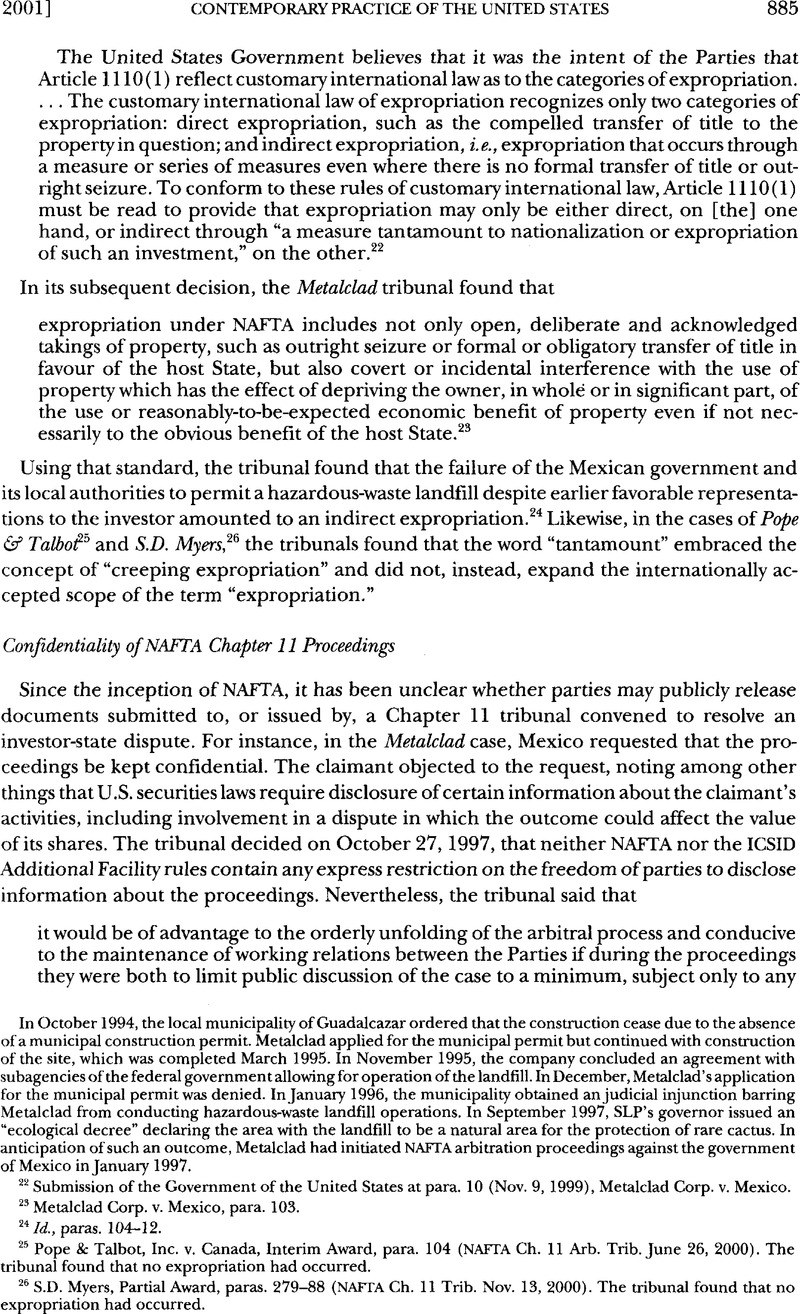No CrossRef data available.
Published online by Cambridge University Press: 10 March 2017

1 See Metalclad Corp. v. Mexico, Award, para. 13 (NAFTA Ch. 11 Arb. Trib. Aug. 30, 2000), 40 ILM 36, 39 (2001) (discussing and quoting from the tribunal’s October 1997 order on confidentiality).
2 Loewen Group v. United States, Decision on Hearing of Respondent’s Objection to Competence and Jurisdiction, paras. 25–26, 28 (NAFTA Ch. 11 Arb. Trib. Jan. 9, 2001) (discussing the tribunal’s September 1999 and June 2000 orders on confidentiality).
3 See Methanex Corp. v. United States, Procedural Order Regarding Disclosure and Confidentiality (NAFTA Ch. 11 Arb. Trib. Sept. 7, 2000). The tribunal’s order contains as an appendix a “confidentiality agreement” to be used by parties when disclosing confidential documents to witnesses or to experts or consultants retained to assist in the case.
4 The nongovernmental organizations were International Institute for Sustainable Development (based in Canada) and Earth Island Institute and Communities for a Better Environment (both based in the United States).
5 See Methanex Corp. v. United States, Decision of the Tribunal on Petitions from Third Persons to Intervene as “Amici Curiae, ” para. 53 (NAFTA Ch. 11 Arb. Trib. Jan. 15, 2001).
6 Id., para. 42.
7 [Editor’s Note: NAFTA Article 1120(2) provides: “The applicable arbitration rules shall govern the arbitration except to the extent modified by this Section.”]
8 Free Trade Commission Clarifications Related to NAFTA Chapter 11 (July 31, 2001), at <http://www.ustr.gov/regions/whemisphere/>. NAFTA Article 2102 addresses issues of national security. NAFTA Article 2105 allows for nondisclosure of information that, if disclosed, “would impede law enforcement or would be contrary to the Party’s law protecting personal privacy or the financial affairs and accounts of individual customers of financial institutions.”